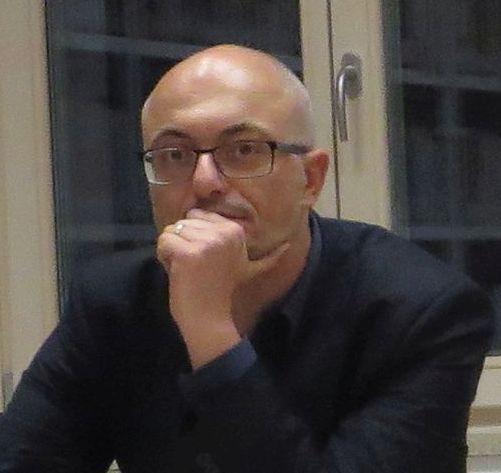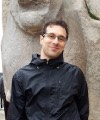Studying at the University of Verona
Here you can find information on the organisational aspects of the Programme, lecture timetables, learning activities and useful contact details for your time at the University, from enrolment to graduation.
Academic calendar
The academic calendar shows the deadlines and scheduled events that are relevant to students, teaching and technical-administrative staff of the University. Public holidays and University closures are also indicated. The academic year normally begins on 1 October each year and ends on 30 September of the following year.
Course calendar
The Academic Calendar sets out the degree programme lecture and exam timetables, as well as the relevant university closure dates..
| Period | From | To |
|---|---|---|
| 1° semestre lezioni a Trento | Sep 13, 2021 | Dec 22, 2021 |
| 1 A | Sep 27, 2021 | Nov 6, 2021 |
| 1 B | Nov 15, 2021 | Jan 12, 2022 |
| 2° semestre lezioni a Trento | Feb 14, 2022 | May 27, 2022 |
| 2 A | Feb 14, 2022 | Mar 26, 2022 |
| 2 B | Apr 4, 2022 | Jun 4, 2022 |
| Session | From | To |
|---|---|---|
| Sessione d'esame invernale | Jan 10, 2022 | Feb 12, 2022 |
| Sessione d'esame estiva | Jun 6, 2022 | Jul 23, 2022 |
| Sessione d'esame autunnale | Aug 29, 2022 | Sep 24, 2022 |
| Session | From | To |
|---|---|---|
| Sessione straordinaria (a.a. 2020/21) | Mar 28, 2022 | Apr 2, 2022 |
| Sessione estiva | Jul 11, 2022 | Jul 16, 2022 |
| Sessione autunnale | Nov 7, 2022 | Nov 12, 2022 |
| Sessione straordinaria | Mar 31, 2023 | Apr 6, 2023 |
| Period | From | To |
|---|---|---|
| Festività natalizie | Dec 24, 2021 | Jan 2, 2022 |
| Festività pasquali | Apr 15, 2022 | Apr 19, 2022 |
| Festività Santo Patrono di Verona | May 21, 2022 | May 21, 2022 |
| Chiusura estiva | Aug 15, 2022 | Aug 20, 2022 |
Exam calendar
Exam dates and rounds are managed by the relevant Culture and Civilisation Teaching and Student Services Unit.
To view all the exam sessions available, please use the Exam dashboard on ESSE3.
If you forgot your login details or have problems logging in, please contact the relevant IT HelpDesk, or check the login details recovery web page.
Should you have any doubts or questions, please check the Enrollment FAQs
Academic staff

Bassetti Massimiliano
 massimiliano.bassetti@univr.it
massimiliano.bassetti@univr.it
 045802 8376
045802 8376
 giovanni.bernardini@univr.it
giovanni.bernardini@univr.it
 giovanni.ciappelli@univr.it
giovanni.ciappelli@univr.it
Study Plan
The Study Plan includes all modules, teaching and learning activities that each student will need to undertake during their time at the University.
Please select your Study Plan based on your enrollment year.
1° Year
| Modules | Credits | TAF | SSD |
|---|
Medieval History, History of Christianity and Churches
Contemporary History I - LM
Early Modern History I - LM (Historical Anthropology)
1 module among the following1 module between the followingHistory of Science and Technology - LM
1 module between the followingHistory of Political Institutions II
History of Political Thought
1 module among the following
History of Medieval Art I
Medieval Latin Literature II
Digital tools for historical research
2° Year activated in the A.Y. 2022/2023
| Modules | Credits | TAF | SSD |
|---|
| Modules | Credits | TAF | SSD |
|---|
Medieval History, History of Christianity and Churches
Contemporary History I - LM
Early Modern History I - LM (Historical Anthropology)
1 module among the following1 module between the followingHistory of Science and Technology - LM
1 module between the followingHistory of Political Institutions II
History of Political Thought
1 module among the following
History of Medieval Art I
Medieval Latin Literature II
Digital tools for historical research
| Modules | Credits | TAF | SSD |
|---|
Legend | Type of training activity (TTA)
TAF (Type of Educational Activity) All courses and activities are classified into different types of educational activities, indicated by a letter.
Political philosophy I [Sede VR] (2021/2022)
Teaching code
4S003228
Credits
6
Coordinator
Not yet assigned
Language
Italian
Scientific Disciplinary Sector (SSD)
SPS/01 - POLITICAL PHILOSOPHY
The teaching is organized as follows:
Lezione
Credits
4
Period
Sem. 2A
Academic staff
Olivia Guaraldo
Esercitazione
Credits
2
Period
Sem. 2A
Academic staff
Olivia Guaraldo
Learning outcomes
Politics and Theories of the Human The course aims at an in-depth analysis - through an analytical readings of texts – of relevant themes in modern and contemporary political philosophy. Main focus of the analysis will be the relationship between modes of configuring subjectivity (of thinking the subject) and modes of political organization (of thinking the political). This investigation, which is at once political, epistemological and ontological, will put its focus on the relationship modern and contemporary philosophy establishes between concepts and experiences. Expected results will be: - capacity to carry out an analytical and critical reading of complex philosophical texts; - ability to individually elaborate an oral critical-argumentative parcours on the specific issues discussed; - ability to individually elaborate a written critical-argumentative text based on the mandatory readings, discussion in class, personal original elaboration; - conceptual ability to autonomously face philosophico-political problems and dilemmas of our present (i.e.: equality/difference, subjects/power, individual freedom/political order).
Program
By drawing from Aristotle and Hannah Arendt the course aims at understanding which symbolic and conceptual resources are available to political theory today to think public happiness and the good life. The wager is that at the origins of politics there is not a utilitarian drive to the protection of life but an exhibitive urge to reciprocal self-display, being one in front of the other and decide the way in which to organize human coexistence. Today we tend to interpret protest movements and political phenomena within a frame of negative feelings (rage, fear, resentment, hate): in the seminar part of the course we will try to constitute together with the students a possible archive of experiences of public happiness, through some suggested readings and some proposed by the students.The aim is to realize a co-construction of knowledge around democracy as erotic dimension, generative of political bonds.
Examination Methods
Final examination will consist in an oral discussion on the themes of the course. Students will be asked to start with a presentation of a topic individually chosen from those discussed in class (or present in the texts). After this individual presentation the student will be asked about the major theoretical problems dealt with during the course (class discussion and texts). Final evaluation will consider historical-philosophical and historical-political knowledge of the context treated in the course as well as ability to autonomously face philosophical-political dilemmas related to the reality of public life (public debates, public emergencies, public opinion).
The seminar part, which should be attended regularly and actively, will determine 40% of final evaluation. This part will involve students directly, who will be asked to present and discuss in class texts suggested by the Professor and texts or case-studies proposed by them.
Type D and Type F activities
COMPETENZE TRASVERSALI
Modules not yet included
Career prospects
Module/Programme news
News for students
There you will find information, resources and services useful during your time at the University (Student’s exam record, your study plan on ESSE3, Distance Learning courses, university email account, office forms, administrative procedures, etc.). You can log into MyUnivr with your GIA login details: only in this way will you be able to receive notification of all the notices from your teachers and your secretariat via email and soon also via the Univr app.
Linguistic training CLA
Double degree
The University of Verona, through a network of agreements with foreign universities, offers international courses that enable students to gain a Double/Joint degree at the time of graduation. Indeed, students enrolled in a Double/Joint degree programme will be able to obtain both the degree of the University of Verona and the degree issued by the Partner University abroad - where they are expected to attend part of the programme -, in the time it normally takes to gain a common Master’s degree. The institutions concerned shall ensure that both degrees are recognised in the two countries.
Places on these programmes are limited, and admissions and any applicable grants are subject to applicants being selected in a specific Call for applications.
The latest Call for applications for Double/Joint Degrees at the University of Verona is available now!
Graduation
List of theses and work experience proposals
| theses proposals | Research area |
|---|---|
| Ambiti di tesi | Art & Architecture - Art & Architecture |
Student mentoring
Student login and resources
Manifesto degli studi
Manifesto degli studi del CdLM interateneo in Scienze storiche
Documents
| Title | Info File |
|---|---|
|
|
pdf, it, 466 KB, 26/02/24 |
|
|
pdf, it, 456 KB, 26/02/24 |






















